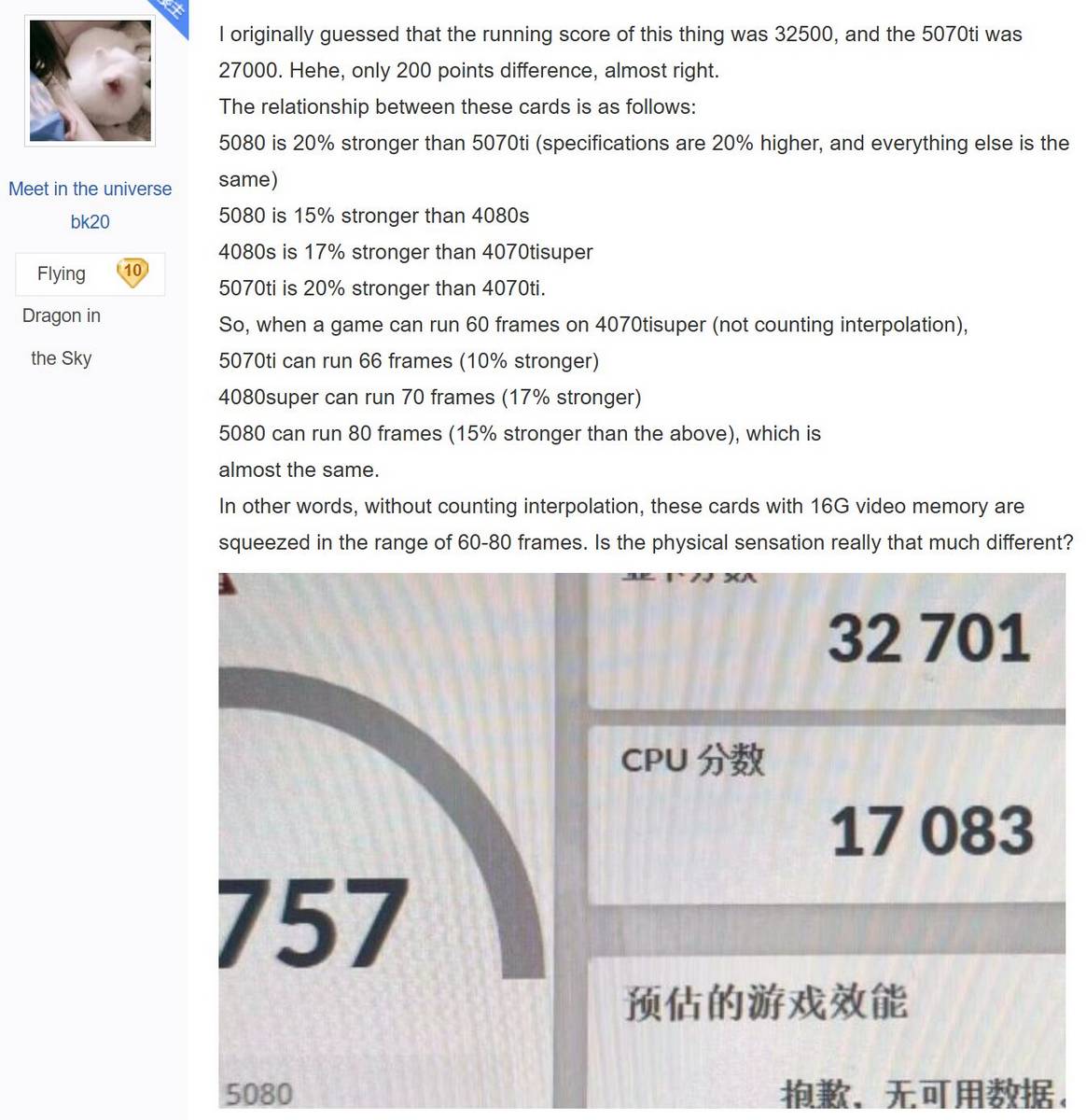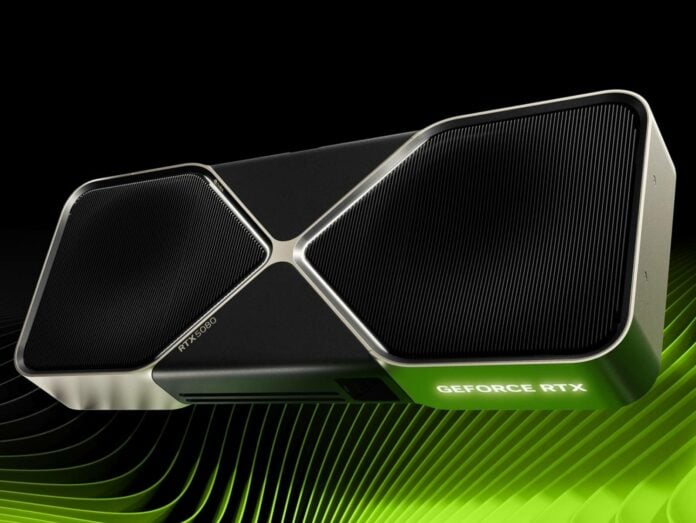Nvidia GeForce RTX 5080 has been put through its paces in multiple benchmarks, showing a nice uplift compared to its predecessor. Should these hold weight for the rest of the card’s performance, the GPU will slot right in between RTX 4080 Super and RTX 4090.
With RTX 5090 cementing its place as the fastest graphics card to date, eyes are starting to turn towards RTX 5080. Despite its substantially smaller size, this chip could become the most exciting one out of the bunch. Unlike RTX 5090 which binds its flagship performance to an equally high price tag, RTX 5080 comes cheaper than its predecessor while delivering a noticeable uplift.
According to some 3DMark Time Spy leaks, RTX 5080 is around 11% slower than RTX 4090 using an AMD Ryzen 7 7800X3D system. When overclocked, RTX 5080 closed the gap to 4%, making it a perfect upgrade for almost any user. At its advertised $999, Blackwell’s high-end model looks mighty impressive, especially compared to RTX 4090’s $1,599. The only issue is that initial stocks seem to be very low, which could make it hard to get.

RTX 5080 sits 15.5% ahead of the $999 RTX 4080 Super, which is great if it translates into real-world gaming performance. There’s a similar uplift in Geekbench’s Vulkan test, with about a 15% increase over its predecessor. That said, the OpenCL test only netted an extra 2.3%.
Generally speaking, RTX 5080 is near enough half the hardware of RTX 5090, right down to its 10,752 CUDA cores compared to the flagship’s 21,760. Against all odds, these benchmarks put the high-end card within 50% of its bigger brother, narrowing the margins more than expected. It’s tough to call how accurate these are at this stage, but this could be due to the faster 30Gb/s memory clocks lending it a hand. You also need to consider that there are diminishing returns on higher core counts, too.
As usual, these are only leaks, they could very well be wrong or based on unoptimised or incompatible drivers. Thankfully we should be fixed very soon, when reviews get the green light.

